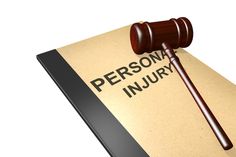Careers as Personal Injury Lawyers can be challenging, but also highly rewarding. In this legal profession, you must have a good understanding of law, but also a lot of compassion and excellent communication skills. You should be able to relate well with others, too. This blog will examine what it takes for you to secure a personal injury solicitor job, including the duties you should expect, the skills that you need, and how you can secure a position in the competitive industry.
What does a personal injury solicitor do?
A personal injury solicitor represents clients injured by accidents, negligence or malicious harm. The cases may range from medical malpractice and workplace accidents to auto crashes and incidents of public liability. Personal injury solicitors are advocates for clients, seeking compensation to cover physical and emotional injuries as well as financial losses.
The Key Responsibilities for a Personal Injuries Solicitor
Customer Consultations
A Personal Injury Lawyer’s primary responsibility is to consult with their clients. In these consultations, the solicitor gathers detailed information on the incident and provides initial legal advice. At this point, it is important to build rapport with the client and understand their needs.
Case Investigation
To build strong claims, Personal Injury Lawyers need to thoroughly investigate every case. It involves reviewing medical reports, speaking with witnesses, consulting experts and analysing accident reports. An investigation that is meticulous can have a significant impact on the case.
Legal Documentation
The job involves a lot of drafting and filing documents. To support the case of their clients, solicitors draft pleadings and motions. To ensure that all paperwork is submitted accurately and on time, it is important to pay attention to the details.
Negotiations
Negotiations with opposing parties or their insurers are often used to settle personal injury claims. Negotiation skills are used by solicitors to achieve a settlement which compensates their clients for injuries and loss.
Legal Representation
In court, personal injury solicitors will represent clients at hearings and during trials. Personal Injury Solicitors present evidence, examine witnesses and make compelling arguments in order to represent their clients’ best interests.
The Essentials for Personal Injury Lawyers
Excellent Communication Skills
Attorneys who specialize in personal injury must be able to communicate with their clients, doctors, opposing attorneys, and witnesses. In negotiations and courtrooms, it is important to communicate clearly.
Empathy and compassion
Empathy and compassion are essential when working with clients who have been injured. Lawyers need to understand both the emotional and physical impact of the injuries their clients have suffered and support them throughout the legal proceedings.
Ability to solve problems and analyze data
Each case presents unique challenges. Lawyers are required to analyze and identify complex data, as well as key issues. They must also develop strategies. They can navigate the legal system and reach favorable results with their strong problem-solving abilities.
Pay Attention To Detail
Personal injury law requires accurate documentation and thorough investigation of the case. To ensure that no evidence of critical importance is missed and all documents are prepared correctly, solicitors need to pay attention to details.
The Art of Negotiation
Negotiations can result in favorable settlements, without the need to fight a long court case. Lawyers need to be good negotiators who can advocate for their client while also finding common ground.
The Career Pathway and Opportunities for Growth
Job Positions at Entry Level
Aspiring personal injury solicitors usually begin their career as paralegals or trainees at law firms that specialize in personal injuries. The hands-on training allows the trainees to develop their skills and learn from experienced solicitors.
Experience is a great way to learn.
Associates are often hired after qualifying as solicitors. They handle their own cases and take on increasingly complex ones. It is important to build a solid clientele and reputation during this phase.
The Specialization of Advanced Roles
Some solicitors specialize in certain areas, such as workplace accidents, medical malpractice or catastrophic injuries. Some of the more advanced roles include being a partner, managing a team or starting their own law practice.
Continuous Professional Development
Solicitors are required to stay up-to-date with the changing laws and regulations. To improve their career opportunities, many solicitors pursue further qualifications, participate in seminars and join professional associations.
How to Get a Job As a Personal Injuries Solicitor
Educational Qualifications
First, prospective solicitors must have a degree in law or a qualification equivalent. The next step is to complete the Legal Practice Course and secure a contract as a trainee with a firm. Specializing in personal injury during your study can give you an edge.
Gaining Relevant Experience
Experience is priceless. The experience gained from internships, clerkships and paralegal jobs can help you build your professional network and gain insight into the day-to-day responsibilities of solicitors. It can be helpful to volunteer with legal aid organizations.
Networking is a great way to build connections.
The legal profession is largely reliant on networking. Join professional associations and network with legal professionals through platforms such as LinkedIn. It is also important to build relationships with mentors that can provide guidance and support.
How to Create a CV that is Impressive and a Cover Letter
A well-crafted cover letter and CV are crucial when applying for jobs. You should highlight relevant skills and experience and customize each application for the role. You can stand out from the crowd by demonstrating a thorough understanding of firm values and clientele.
How to Ace the Interview
A successful interview is all about preparation. Prepare your answers by researching the company, anticipating questions and practicing them. Showcase your experience and passion for the job. You should show how you will contribute to the success of the company and add value for its clients.
What are the rewards and challenges of being a personal injury solicitor?
Customer Satisfaction
It can be extremely rewarding to help clients receive compensation and justice for their injuries. Your personal relationships and positive work impact add to your job satisfaction.
Financial Rewards
Careers as Personal Injury Lawyers are lucrative, particularly for those who hold senior positions or specialize in the field. The high demand for these services guarantees competitive salaries as well as the possibility of bonuses.
Work-Life balance
Many firms provide flexible work arrangements for solicitors to balance professional and private lives. Flexibility can help to maintain well-being, and even job satisfaction.
The Emotional Challenges
The emotional strain of dealing with clients who are suffering from serious injury can be overwhelming. While providing emotional support to clients, lawyers must also manage their emotions. It is important to build resilience and seek support when necessary.
Legal Complexity
As the legal environment is constantly changing, solicitors must stay up-to-date on all new laws and regulation. The process of continuous learning can be difficult, but it is also stimulating intellectually and necessary for accurate advice.
Final Thoughts:
Careers as Personal Injury Lawyers offer a blend of intellectual challenge, personal satisfaction, and financial rewards. This career requires diverse skills, an ethical commitment, and the desire to truly help others. This role is rewarding for those who enjoy building relationships and solving problems. You can have a rewarding career as a personal injury solicitor by following these steps, and developing your skills.




